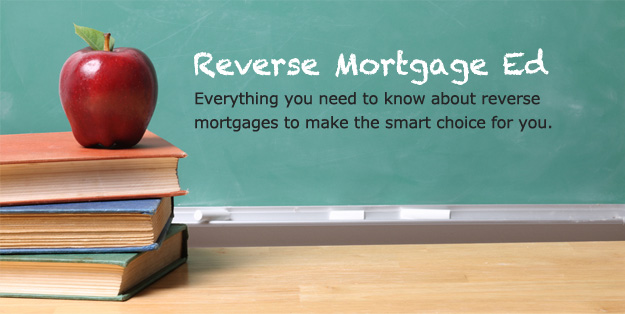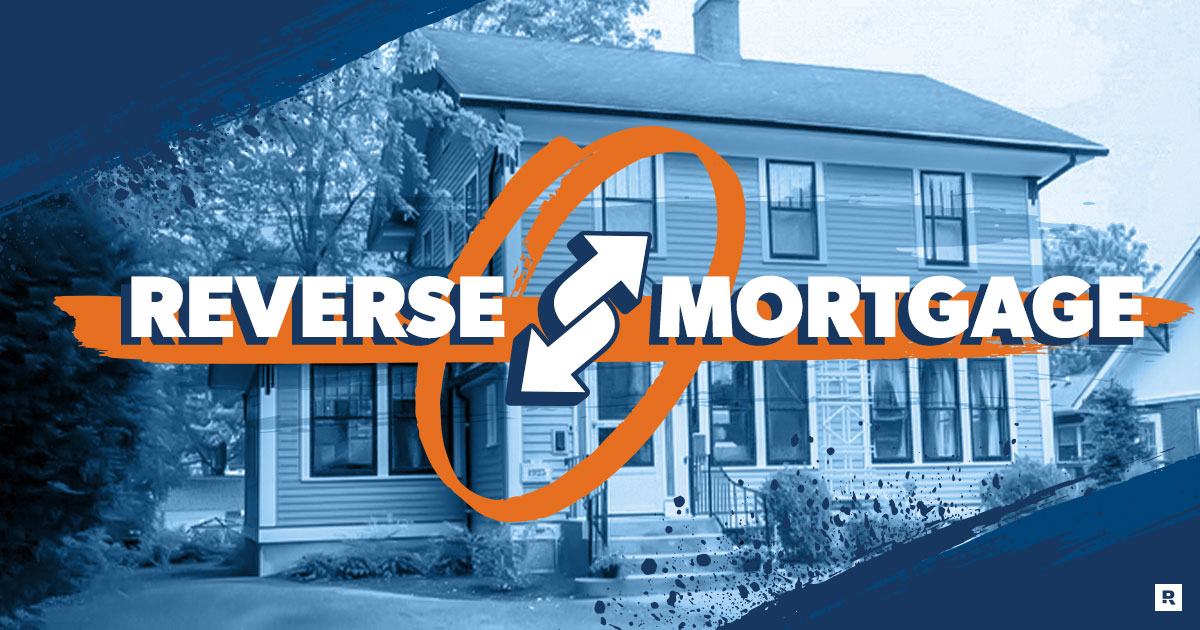What You Need to Know Before You Purchase Reverse Mortgage
What You Need to Know Before You Purchase Reverse Mortgage
Blog Article
Empower Your Retirement: The Smart Method to Purchase a Reverse Mortgage
As retirement approaches, several people look for reliable strategies to enhance their economic self-reliance and health. Amongst these approaches, a reverse home mortgage arises as a sensible alternative for homeowners aged 62 and older, enabling them to tap into their home equity without the requirement of regular monthly payments. While this monetary device offers a number of benefits, including increased capital and the potential to cover important expenses, it is essential to understand the complexities of the application process and essential factors to consider involved. The following steps may reveal exactly how you can make a knowledgeable decision that can significantly influence your retirement years.
Comprehending Reverse Home Mortgages
Comprehending reverse home mortgages can be crucial for house owners looking for monetary versatility in retirement. A reverse home mortgage is a financial item that enables qualified house owners, normally aged 62 and older, to convert a portion of their home equity right into cash money. Unlike conventional home mortgages, where customers make monthly payments to a loan provider, reverse mortgages make it possible for property owners to obtain repayments or a lump sum while retaining ownership of their building.
The amount readily available with a reverse mortgage depends upon several variables, consisting of the homeowner's age, the home's worth, and present rate of interest. Significantly, the financing does not need to be repaid until the house owner offers the home, moves out, or passes away.
It is important for potential customers to recognize the implications of this monetary product, consisting of the influence on estate inheritance, tax factors to consider, and recurring obligations associated with residential or commercial property maintenance, taxes, and insurance coverage. Additionally, counseling sessions with accredited professionals are typically required to make sure that customers totally comprehend the terms and problems of the lending. On the whole, a complete understanding of reverse mortgages can empower home owners to make enlightened choices concerning their financial future in retirement.
Advantages of a Reverse Mortgage
A reverse home loan supplies several compelling advantages for eligible house owners, specifically those in retired life. This monetary device allows seniors to convert a section of their home equity into cash money, offering vital funds without the need for regular monthly home loan repayments. The cash acquired can be used for different purposes, such as covering clinical costs, making home renovations, or supplementing retirement earnings, therefore boosting overall economic flexibility.
One substantial benefit of a reverse home loan is that it does not call for payment up until the homeowner vacates, sells the home, or dies - purchase reverse mortgage. This attribute makes it possible for senior citizens to maintain their way of life and meet unanticipated costs without the worry of regular monthly payments. Furthermore, the funds received are commonly tax-free, enabling home owners to use their money without worry of tax obligation ramifications
Furthermore, a reverse home mortgage can provide assurance, recognizing that it can function as a financial safety and security net throughout challenging times. Homeowners additionally maintain possession of their homes, guaranteeing they can continue staying in an acquainted setting. Inevitably, a reverse home mortgage can be a calculated funds, encouraging retired people to manage their financial resources efficiently while enjoying their gold years.
The Application Process
Navigating the application process for a reverse mortgage is an important action for house owners considering this financial choice. The very first stage entails assessing qualification, which typically calls for the homeowner to be at the very least 62 years old, very own the home outright or have a low he said home mortgage balance, and occupy the home as their primary residence.
When eligibility is confirmed, home owners have to go through a counseling session with a HUD-approved counselor. This session guarantees that they totally comprehend the effects of a reverse home mortgage, consisting of the responsibilities entailed. purchase reverse mortgage. After completing therapy, applicants can continue to collect needed paperwork, consisting of evidence of income, properties, and the home's worth
The next action involves sending an application to a loan provider, who will evaluate the monetary and home qualifications. An appraisal of the home will certainly additionally be performed to identify its market value. If accepted, the lender will certainly offer funding terms, which need to be assessed meticulously.
Upon approval, the closing procedure adheres to, where final documents are signed, and funds are disbursed. Comprehending each stage of this application procedure can considerably improve the home owner's confidence and decision-making regarding reverse mortgages.

Secret Factors To Consider Prior To Investing In
Acquiring a reverse home loan is a significant economic choice that needs mindful consideration of several key aspects. Recognizing your eligibility is vital. House owners have to go to least 62 years of ages, and the home needs to be their key home. Assessing your financial requirements and objectives is equally important; identify whether a reverse home loan aligns with your long-term strategies.

Additionally, analyze the effect recommended you read on your current lifestyle. A reverse home loan can influence your qualification for sure federal government advantages, such as Medicaid. Look for professional guidance. Consulting with a monetary consultant or a real estate counselor can supply beneficial understandings customized to your specific conditions. By completely reviewing these considerations, you can make a more educated decision regarding whether a reverse home mortgage is the best financial method for your retirement.
Making the Many of Your Funds
As soon as you have safeguarded a reverse home loan, successfully handling the funds becomes a concern. The flexibility of a reverse home mortgage allows home owners to make use of the funds in numerous ways, however tactical planning is important to optimize their advantages.
One vital strategy is to produce a spending plan that details your economic goals and month-to-month costs. By determining necessary expenditures such as medical care, real estate tax, and home maintenance, you can designate funds as necessary to guarantee long-term sustainability. In addition, take into consideration utilizing a part of the funds for financial investments that can generate revenue or value in time, such as common funds or dividend-paying stocks.
An additional important aspect is to keep an emergency situation fund. Reserving a book from your reverse mortgage can assist cover unexpected prices, giving satisfaction and financial security. Consult with an economic expert to check out feasible tax obligation ramifications and just how to integrate reverse home mortgage funds right into your overall retired life method.
Ultimately, sensible management of reverse mortgage funds can boost your financial safety and security, permitting you to enjoy your retired life years without the stress and anxiety of economic uncertainty. Careful preparation and notified decision-making will certainly guarantee that your funds work efficiently for you.
Conclusion
In final thought, a reverse home loan offers a viable economic technique for seniors seeking to improve their retirement experience. By transforming home equity into available funds, people can deal with crucial expenditures and safe extra funds without sustaining regular monthly repayments. Careful consideration of the connected terms and ramifications is vital to take full advantage of advantages. Inevitably, leveraging this monetary device can assist in higher independence and improve overall high quality of life throughout retired life years.
Comprehending reverse home mortgages can be essential for home owners seeking financial flexibility in retired life. A reverse home loan is a monetary product that permits qualified property owners, normally aged 62 and older, to transform a portion of their home equity into money. Unlike traditional mortgages, where borrowers make regular monthly repayments to a lender, reverse home mortgages make see this page it possible for property owners to receive settlements or a swelling sum while preserving ownership of their residential property.
On the whole, a complete understanding of reverse home loans can encourage house owners to make educated decisions concerning their economic future in retired life.
Seek advice from with a financial expert to discover possible tax obligation implications and exactly how to integrate reverse home loan funds into your total retired life strategy.
Report this page